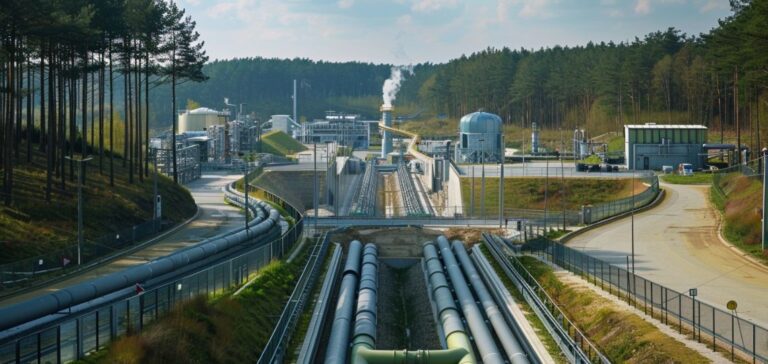GASCADE Gastransport GmbH has reached a key milestone in the energy sector by initiating hydrogen filling for the first section of its Flow programme. This ambitious project aims to convert approximately 400 kilometres of existing pipelines, originally dedicated to natural gas, into hydrogen transport infrastructure by the end of 2025.
A strategic project for Germany’s hydrogen network
The Flow programme is part of Germany’s core hydrogen network, designed to establish a north-south highway for hydrogen transport. By converting existing infrastructure, GASCADE aims to facilitate an efficient and cost-effective energy transition, thereby strengthening the country’s hydrogen supply security.
Pipeline capacity and future outlook
Once fully operational, the converted pipeline is expected to have a transport capacity of up to 20 gigawatts. It will enable the transfer of hydrogen produced both offshore and onshore, particularly from northern Mecklenburg-Western Pomerania to southern Germany.
Statements from GASCADE executives
Christoph von dem Bussche, Managing Director of GASCADE, stated that this conversion demonstrates the company’s technological expertise and sends a strong signal for the hydrogen economy. Ulrich Benterbusch, also Managing Director, added that the Flow programme is a central component of GASCADE’s strategy to make existing infrastructure available for hydrogen transport quickly and economically.
Context and implications for the energy sector
The launch of this project comes as Germany seeks to strengthen its hydrogen network to support the energy transition. The conversion of these pipelines could also have implications for industries dependent on hydrogen, ensuring a stable supply and opening new commercial opportunities.






















